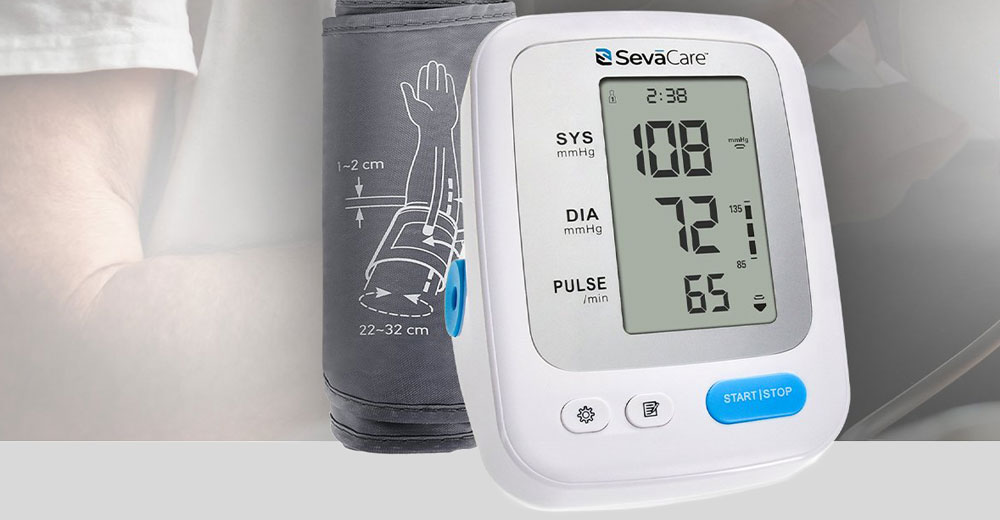The modern world is becoming more difficult every year for e-commerce marketers. Audiences are harder than ever to reach as mistrust of traditional marketing tactics continues to increase.
Banner ads are dying with the rise of ad blockers — and proven lead generation methods like pop-ups and interstitials are becoming less and less effective. Clearly a new tactic is needed — and that tactic is quizzes.
At first glance, quizzes don’t seem to relate to marketing — people often think of them as purely ‘fun’ and lighthearted content. However, in this current social media landscape, interactive and viral quizzes are a crucial tool that e-commerce businesses need to embrace to succeed.
So why do quizzes work?
It’s all down to psychology. Quizzes are effective (and irresistible) because as humans, we all have a deep-seated urge to learn about ourselves. Being a little vain, we also love to share our discoveries with our friends — and today’s technology makes that easier than ever.
Smart marketers are able to leverage quizzes to tap into a goldmine of marketing info. First, they engage their audience’s interest with a compelling quiz. Then they collect each quiz taker’s email and quiz responses to power their sales funnels, personalize drip email campaigns, and convert more customers.
How can marketers unleash the full potential of quizzes? Following are five easy steps that can help you level up your quizzes to achieve marketing success.
Step 1: Understand the Psychology
Throughout history, we have always been driven to learn more — more about the world and the way things work, but also more about ourselves, our inner thoughts, and deepest desires. It is this passion for understanding how our minds work that has helped make us who we are today — and plays a key role in our advancement as a species.
In fact, humanity is biologically wired to pursue greater self-awareness and understanding — we simply can’t help ourselves from focusing on ourselves. Think about how, before the advent of the Internet, magazines would create personality tests with a wide variety of topics. They were simple in design, but well-nigh impossible to resist.
Answering each question would give you a total score that would assign you a certain personality type. While you waited for your dentist appointment, those bite-sized chunks of content would let you discover insights about yourself that you could go on to share with your friends when you got home.
In today’s fast-paced world of short attention spans, it often can seem that we’ve turned from knowledge seekers to fickle content consumers, quickly moving on to the next shiny thing that captures our attention.
However, you’d be wrong to assume that people no longer wish to gain insights about themselves. Sure, content delivery may have shifted, but the desire for greater self-awareness remains.
Online quizzes are the modern equivalent of those magazine tests. If you’ve been anywhere near social media in recent years, you’ve surely seen someone (or many someones) in your extended social circle take and share a quiz across Facebook, Twitter, and other social networks. In fact, we bet you may have even taken and shared one yourself.
Quizzes can be silly or serious. Examples of successful quizzes created by e-commerce companies include the silly (‘What’s your secret dream vacation?’ or ‘Which car should you really buy?’) as well as the serious (‘Are you depressed?’ or ‘What’s your biggest weakness as a boss?’).
Today’s Internet audiences are busy — quizzes allow people to gain a quick insight about themselves in just a few minutes, then get on with their day.
Step 2: Craft the Perfect Quiz
A quiz can come in many different forms: Top quiz makers offer a wide range of interactive formats — personality tests, branching logic, polls and more. While each quiz might vary in mechanics, they’re all designed to engage users and help them discover something new about themselves.
Of course, there is more to a successful quiz than simply asking a random series of questions. Writing a successful quiz is more art than science, but to help you get started, here are our top tips from our 25-plus combined years of quiz making:1. Make a killer title: We can’t stress this enough: The title is the first thing people see when they come across your quiz. It needs to grab their attention and get them intrigued enough to explore more. Think of your title like the subject line in an email — you need your title to encapsulate the entirety of the quiz.
Talk to each quiz taker in second person (“you”) and make sure to challenge them with titles like “What Game of Thrones character are you really?” or “Can you answer these 11 questions every manager should know?”
2. Keep it interesting: Getting a user to click on your quiz is just the start. Your next challenge is to get people to enjoy taking your quiz. It may seem obvious, but when the goal is to keep them engaged until the end, you need to be able to retain their eyeballs for the entirety of the quiz. To achieve this, you need to make sure the content of your quiz is interesting, up-to-date, and clever.
That’s the theory, but for specifics, we recommend the following:
- Short questions: It’s tempting to go into detail, or get overly wordy, but brief questions read easily — and keep people answering.
- Three to four choices per question: Humans are funny. Give us too many choices and we flounder with indecision. Show fewer options and you’ll see greater quiz engagement.
- Follow the “3 Minute Rule”: Don’t make your quiz too long. With up to 65 percent of quiz takers on mobile, your potential customers won’t want the questions to drag on for too long. The sweet spot is three minutes: make sure you don’t go over this time limit, or quiz takers will leave before they finish your quiz.
3. Make the results count: Quiz results matter. They’re your viral ambassadors in that they’re what people first see when their friend shares it on social media. Keeping one customer is nice of course, but the goal is to have them share their results across social media, creating an endless cycle of virality that you can capitalize on. Make sure the results are funny, witty or clever. If you’re unsure of your writing ability, test the quiz on your friends or coworkers and see what their reactions are.
4. Don’t give up: Diversify. Don’t be afraid to fail. Try different quiz types. Every e-commerce audience is different, so you need to find out what works (and what doesn’t). Not having great success the first time around? Tweak things until you do. Still having trouble getting people to bite? Think about hiring external help from a freelancing site like Upwork, Fiverr, Freelancer or many others. The current going rate is roughly US$30 for a simple trivia quiz and $65 for a more in-depth personality test. This could be a great investment to jumpstart your e-commerce quiz marketing funnel.A quick note about personality tests: These are some of the most popular quizzes around. If you’re creating one, psychologists claim that there are five classic personality traits that can describe each human psyche: openness to experience, conscientiousness, extraversion, agreeableness and neuroticism.
When designing your quiz, try to create results that match each of these traits. You’ll appeal to all the different types of people who will take your quiz, and increase the chances they’ll complete your lead form as well as share their quiz results.
Step 3: Improve Your Lead Generation
Once you’ve created your quiz to capture your audience’s interest, the next step is to begin collecting leads to power your marketing campaign. Luckily, quizzes are one of the most prolific ways to capture leads.
The stats don’t lie: The average opt-in rate for most email marketing campaigns is 1.95 percent. Anything above 4.75 percent puts you in the 90th percentile. Quizzes, however, can get up to a 40 percent opt-in rate — 8-10X more, blowing every other marketing channel out of the water.
Again, there is a certain way that you have to approach adding lead generation to your quiz. If you’re too blatant or aggressive, you’ll end up scaring most quiz takers away, losing countless potential customers. It can be a delicate process convincing customers to give away their personal information.
Use time to your advantage when deciding when to insert your opt-in form. The best time to include an opt-in form is at the end of the quiz — between the last question and showing the user’s results. This is the point of maximum engagement, when your audience will be most emotionally invested and keen to see results.
Plus, they’re psychologically primed for a well-time offer. After answering your 6-10 questions, they’re active and participating — subconsciously inclined to respond to a well-timed offer.
Also — though it sounds a bit counterintuitive — it’s best if you don’t make the lead form mandatory. People actually tend to give more (and higher quality) information when they’re not forced to. If you push someone into sending their information, they are much more likely to exit out of the quiz or enter false data like “[email protected],” leaving you with nothing.
Offering discount codes, early beta access to new products, or contests are all great ways to incentivize people to choose to opt in for your lead form. The prospect of receiving something valuable encourages each lead to give their real data, boosting opt-in rates into that high-flying 40 percent-plus range.
Step 4: Personalize Your Sales Funnel
Quizzes can help you improve your sales funnel and qualify leads. Currently online companies waste 71 percent of leads, largely due to lack of qualification. Quizzes can be designed specifically to personalize future marketing campaigns and strengthen your leads.
Qualifying each lead is an important process for any business. In fact, lead qualification is perhaps even more important than lead generation. Some users have specific interests or price ranges that make generalized marketing campaigns less useful. You need to know exactly what they are looking for in order to gear campaigns directly to their specific interests.
For example, imagine you are an online bookstore selling test prep materials. You are bound to have people from all walks of life going to your website trying to find test materials. However, how do you know if someone’s studying to take the LSAT, SAT, MCAT, or any other standardized tests?
A simple quiz, asking questions like “What’s your dream career?” can solve this issue. You can tag everyone who answers “doctor” for your MCAT list, and “lawyer” for your LSAT campaign.
With a bit of imagination, you can qualify the level, age, and subject of books that each customer seeks. Your marketing campaigns then can be geared toward each person in a much more personalized manner.
Even better, quiz results easily can be automated, sending personalized followup emails to quiz takers for exact products that fill their needs. Today’s quiz makers send all leads and quiz data to MailChimp, HubSpot or another email marketing tool for automatic drip campaigns. Why waste time when you can let a computer do the work for you?
Step 5: Monetize Your Quiz
Quizzes are highly compatible with more traditional marketing strategies as well — things like online banner ads or call-to-action buttons.
With 6-10 questions per quiz, most quiz makers will let you insert ads or refresh the ones on your page, boosting your ad inventory and monetizing all that viral quiz traffic.
Calls-to-action are powerful for e-commerce product recommendations. They prompt the quiz taker to perform an action at some point during the taking of the quiz. Coming back to our online bookseller example, you easily could provide a call to action button in each quiz result, linking to the quiz taker’s specific book and driving sales.
Wrapping things up, quizzes can be an incredibly effective marketing channel for e-commerce companies. In addition to being highly flexible for any business vertical, they are psychologically irresistible, as humans simply can’t resist clicking to discover more about themselves.
When you have someone’s attention, you have a great opportunity to convert that person to a happy customer through lead generation forms, banner ads, or call-to-action buttons.
In today’s rapidly changing e-commerce landscape, quizzes offer savvy marketers a scalable, cost-efficient, and powerfully effective channel for business growth.













































Social Media
See all Social Media